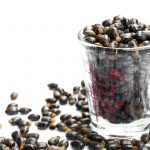Have You Tried These 5 Things for Irritable Bowel Syndrome?
Node Smith, ND
Irritable Bowel Syndrome (IBS) is an incredibly common gastrointestinal complaint that typically presents as gas and bloating, abdominal pain or discomfort, and stools that change between constipation and diarrhea. It can be incredibly frustrating to manage, and many treatments are not very effective. However, many cases of irritable bowel syndrome arise from a functional imbalance in the gastrointestinal tract, and there are a handful of worthwhile things to consider trying.
5 Tips to Tame IBS
1) Mindfulness practice/stress relief – This could have 10 or 20 sub-headings, but the fact of the matter is that our digestion is intimately connected to our emotional state. It is incredibly uncommon for there not to be an underlying stress component to a long-standing digestive complaint (acute situations are a different story). In the most simple terms, our digestion relies on parasympathetic tone to function properly.
Parasympathetic tone is the state of our body when we are calm, at rest – its the part of the nervous system that governs digestion. During stress, and this includes all types of stress – emotional, psychological, and physical – our parasympathetic nervous system is down regulated and our sympathetic nervous system dominates. Most of us are in a fairly constant sympathetic state, orchestrated by a chaotic and busy lifestyle.
So, developing a practice which supports a restful and introspective time during the day can help turn the parasympathetic nervous system back on and balance the digestion. Mindful breathing, prayer, yoga, qigong, walking, or reading are all things that can either reduce stress or promote mindfulness (ideally both).
2) Movement – Getting the body moving is a great way to promote healthy bowel function. Part of the way that this works is that daily movement or exercise is a great way to relieve stress and dissipate built up tension in the body – which for many of us tends to constrict our stomach and intestines.
3) Apple Cider Vinegar – You’ve all heard of it, and you may have laughed it off, but ACV helps tons of people regulate their digestion. Taking just a teaspoon before meals helps prime the stomach for a meal, helping digestion to be more efficient. It tends to help people the most who have low stomach acid (yes, heartburn is a common sign of LOW stomach acid).
4) Probiotics – Of course, probiotics are worth a try. Many people develop IBS after a round of antibiotics, and it takes them years to finally put the pieces of the puzzle together and realize that that’s what started it all. When we take antibiotics, we kill off the good bacteria in our gut. Taking a probiotic helps get that healthy flora back.
5) Increase Fiber – Most people are fiber deficient, and fiber can really help improve a myriad of digestive complaints. Fiber acts as a mechanical stimuli for normal bowel function, as well as helps detoxify the colon of toxins. Some fiber may actually make gas and bloating symptoms worse – this is due to the bacteria in the small intestine eating the fiber. If this occurs, a probiotic may be helpful. There are only a handful of instances where fiber is actually contraindicated; almost invariably it is a healthy addition to the diet. Psyllium husks is probably the easiest and cheapest way to supplement fiber.
Image Copyright: <a href=’https://www.123rf.com/profile_drmicrobe’>drmicrobe / 123RF Stock Photo</a>
 Node Smith, ND, is a naturopathic physician in Portland, OR and associate editor for NDNR. He has been instrumental in maintaining a firm connection to the philosophy and heritage of naturopathic medicine among the next generation of docs. He helped found the first multi-generational experiential retreat, which brings elders, alumni, and students together for a weekend camp-out where naturopathic medicine and medical philosophy are experienced in nature. Four years ago he helped found the non-profit, Association for Naturopathic ReVitalization (ANR), for which he serves as the board chairman. ANR has a mission to inspire health practitioners to embody the naturopathic principles through experiential education. Node also has a firm belief that the next era of naturopathic medicine will see a resurgence of in-patient facilities which use fasting, earthing, hydrotherapy and homeopathy to bring people back from chronic diseases of modern living; he is involved in numerous conversations and projects to bring about this vision.
Node Smith, ND, is a naturopathic physician in Portland, OR and associate editor for NDNR. He has been instrumental in maintaining a firm connection to the philosophy and heritage of naturopathic medicine among the next generation of docs. He helped found the first multi-generational experiential retreat, which brings elders, alumni, and students together for a weekend camp-out where naturopathic medicine and medical philosophy are experienced in nature. Four years ago he helped found the non-profit, Association for Naturopathic ReVitalization (ANR), for which he serves as the board chairman. ANR has a mission to inspire health practitioners to embody the naturopathic principles through experiential education. Node also has a firm belief that the next era of naturopathic medicine will see a resurgence of in-patient facilities which use fasting, earthing, hydrotherapy and homeopathy to bring people back from chronic diseases of modern living; he is involved in numerous conversations and projects to bring about this vision.










